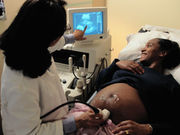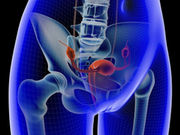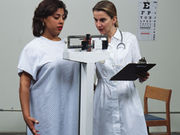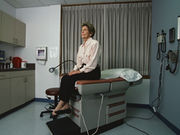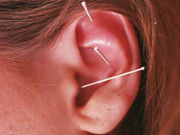Early Births Down With 17α-Hydroxyprogesterone Caproate
Reduction in delivery at less than 24 weeks of gestation compared with cerclage alone
Home-Based CBT Program for Sleep Feasible in Pregnancy
Sleep duration longer, less sleep disruption for intervention group, especially postpartum
Mutations Identified in Uterine, Ovarian Carcinosarcomas
Mutations in previously ID'd cancer genes; excess of mutations in genes encoding histone H2A, H2B
Income Predicts Receipt of Weight-Loss Advice
Findings in overweight, obese adults in cohort, including low-income, racial/ethnic minority adults
Quality of Outpatient Care Has Not Consistently Improved in U.S.
Large analysis finds declines or stagnation in many basic health measures in the United States
New Active Zika Transmission Area in Miami-Dade County
News comes just weeks after another neighborhood was declared free of virus
Delayed Pushing Linked to Longer Second Stage of Labor
Delayed pushing also increases odds of cesarean delivery but not adverse neonatal outcomes
Complete Genome Sequence of Zika Isolated From Semen
Many answers to questions about the virus may lie in the viral genome
Downward Trend in U.S. Breast Cancer Mortality Continues
And the disparity between black and white women is narrowing, CDC says
Acupuncture May Cut Menopausal Vasomotor Symptoms
Indicators can predict which women will benefit from acupuncture







